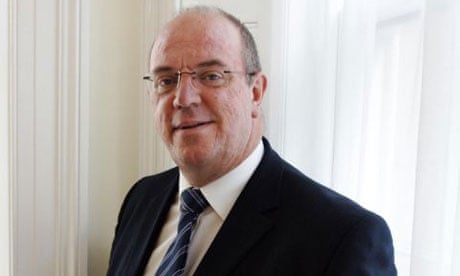The NHS spends 14% of its entire budget – about £15.4bn a year – on management and administration, an influential Commons committee reveals today.
A report by the health select committee accuses the Department of Health of burying the figure, which the MPs claim is due to local NHS organisations' failure to commission services properly.
The study examines the purchaser/provider split that the last Conservative government introduced to the NHS in 1991, and which Labour has bolstered, in an attempt to improve quality of care, achieve better value for money and reduce the power of hospitals to dictate how healthcare is delivered.
"Whatever the benefits of the purchaser/provider split, it has led to an increase in transaction costs, notably management and administration costs. Research commissioned by [the health department] but not published by it estimated these to be as high as 14% of total NHS costs," the committee says.
"We are dismayed that the department has not provided us with clear and consistent data on transactions; the suspicion must be that the department does not want the full story to be revealed."
The MPs say they are appalled that four of the Department of Health's most senior civil servants – including permanent secretary Sir Hugh Taylor and Sir David Nicholson, the NHS chief executive – "were unable to give us accurate figures for staffing levels and costs dedicated to commissioning and billing in primary care trusts and provider NHS trusts".
The 14% figure is contained in a report by health economist Dr Karen Bloor and colleagues at York University in 2005, which the department did not publish.
Dr Jennifer Dixon, director of the Nuffield Trust, a health thinktank, said a 14% outlay on management was not high by the standards of international health systems.
Steve Barnett, chief executive of the NHS Confederation, which represents both PCTs and hospitals, said the 14% figure was "out of date and has no relevance to the commissioner-provider split. This is both unhelpful and misleading." The system had benefitted patients and improved accessibility of NHS services, he added.
The cross-party group of MPs is scathing about the ability of PCTs, which control 80% of the NHS's £110bn budget in England, to pay for patients to be treated by GPs, hospitals and private providers. Many lack the expertise to commission services, although reorganisation and high staff turnover have not helped. It also criticises spending by PCTs on management consultants, a concern which the health services minister, Mike O'Brien, raised in evidence to the committee.
The Department of Health said: "Commissioning is improving and there are many examples of PCTs across the country making a difference for their patients by investing in better quality, better value and better designed services."
